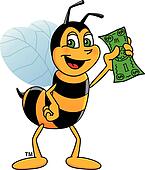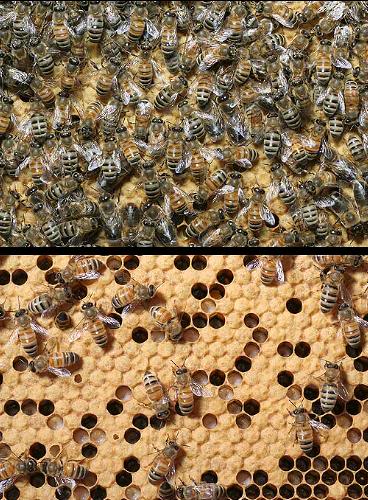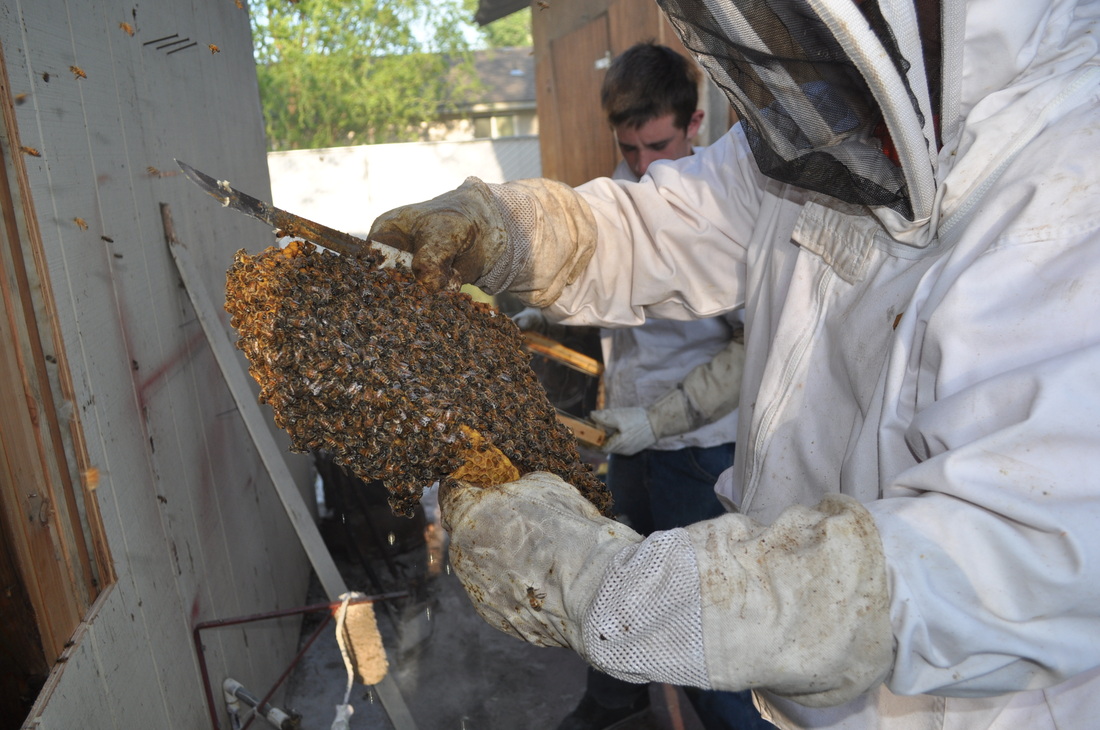Can we be, without the bee?
Are bees crucial to modern society - or must they be replaced?
 |
| Well, there are other alternative candidates for employment so... |
Contrary to the popular belief that bees only exist to produce honey, bees are actually most important to humans as pollinators. The reason bees fly from flower to flower is to collect pollen and nectar to nourish larvae in bee colonies, but at the same time they aid in the reproduction of plants through cross-pollination. Did you know that bees pollinate at least eighty percent of the world’s crops? These include apples, oranges, berries, avocados, cucumbers, carrots, and more. Their role is so significant that at present, the production of almonds in the US is virtually completely dependent on bee pollination. As a result, bee pollination generates a whopping $15 billion in the US economy and £200 million in the UK annually.
 |
| "Money Bees" - The art of Beeconomics |
Another main contribution of bees towards modern society is the generation of jobs. As of 2014, there are around 112000 to 125000 beekeepers in the US alone - and keep in mind that beekeeping has become a worldwide phenomenon for both hobbies and careers. Other jobs that are also created include retailers of bee products, and ironically, specialised pest control as bees tend to build their hives in the nooks and crannies of houses due to the loss of natural habitats. These jobs create revenue and have a hand in the growth of the global economy.
 |
| Soon, unemployment will be on the rise for these buzzy fellas |
 |
| A fall in variable factors of production will cause productivity to plummet |
 |
| "Ho! Humans, thy productivity shalt never surbuzz me!" |
In conclusion, while there are sound concepts for alternatives, practicality of these alternatives falls short of being economically and ecologically beneficial at present. The contributions of bees to modern society are clearly irreplaceable and vital to the continuation of modern society; and thus, bees present a compelling argument for their conservation. However, few know of the plight of the bees - and fewer are aware of the steps we can take to help them. Albert Einstein was once rumoured to say, “If the bee disappeared off the surface of the globe, then man would have only four years of life left.” So now that you have read about their silent struggle, will you still try to swat them away when they buzz around your garden? Will you entertain second thoughts when spraying your flowers with pesticide? Will you still scream about bee stings and call for their extinction? And most importantly, will you join me in spreading word about the bees? I hope you do, dear reader. I hope you do. But if you were to tuck this article in the corners of your mind - as most of us often do - then at least remember this:
We cannot be, without the bee.
 |
| Or perhaps extermination is the wiser option. |
Head of Writing
South Australian Matriculation






